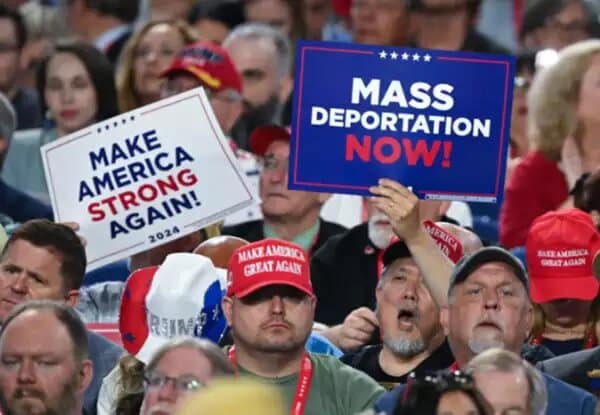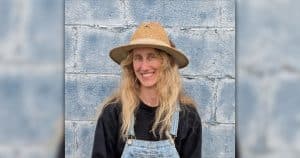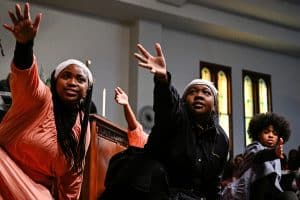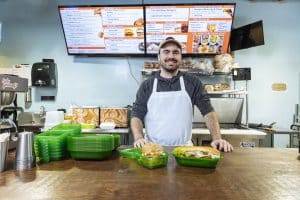Every election, I am reminded that my family and I are seen as more than neighbors, more than parents at the school drop-off line, more than taxpayers. In the heat of election season, we become headlines, talking points, even scapegoats. Immigration stops being about people and starts being about politics.
This year feels no different. From campaign stages to television ads, I hear words like “invasion,” “deportation,” and “detention” tossed around as though they were everyday vocabulary, not policies that could upend real families. I hear promises of “cracking down,” while in my own county, I see immigrant parents quietly working two jobs, children planning for college, and communities trying to live without fear. The disconnect between the rhetoric and the reality has never felt sharper.
The election atmosphere has made immigration more than a policy debate; it has become a litmus test for how America sees itself. Candidates speak of walls and raids, of mass deportations and tighter borders. News headlines count numbers: 2 million people removed, thousands waiting at crossings, new detention requirements. Yet those numbers don’t tell the story of a teenager applying to college while wondering if his undocumented father will be around to see him graduate. They don’t reflect the reality of workers harvesting crops in Pennsylvania fields or cleaning offices in Philadelphia, unsure if tomorrow’s paycheck will still be there.
As an immigrant parent, I feel the weight of this rhetoric in deeply personal ways. My daughter, now at Penn State, studies and thrives on campus. But she also hears debates in classrooms and cafeterias about who “belongs” in this country. My son, just starting his freshman year, scrolls past political posts that suggest immigrants take more than they give. I worry about the subtle ways these words shape their sense of identity — not only as Americans, but also as children of immigrants.
What is often missing from the election stage is the reality that immigration is not an abstract issue; it is a profoundly human one. Policies debated in Washington echo through kitchen tables in Bucks County. Campaign slogans filter down to playground conversations and workplace gossip. For families like mine, the election season is not just about politics. It is about whether we can live with dignity, whether our children feel they truly belong, and whether our neighbors see us as part of the community or as perpetual outsiders.
At the same time, I have seen another side of America. Local friends who bring over food when we break our fast during Ramadan. Colleagues who stand up when they hear demeaning jokes about immigrants. Teachers who encourage students to share their heritage, rather than hide it. These small gestures of solidarity are a quiet reminder that while politics may divide, everyday people often build bridges.
But the fear is real — and it is fueled not just by rhetoric but by enforcement. I have heard stories of Immigration and Customs Enforcement (ICE) agents treating people with cruelty and disregard, reducing them to case numbers rather than recognizing them as human beings. Families are separated during raids, children left terrified, parents taken without warning. Some immigrants in our community describe being spoken to harshly, humiliated, and even physically mistreated during encounters with ICE. These actions do not reflect the values of dignity and fairness that America aspires to uphold. They create a climate of fear that lingers long after the agents leave.
Here in Bucks County, that reality is especially striking. This community is home to a rich tapestry of immigrant backgrounds — from small business owners who fuel our local economy to professionals and entrepreneurs who create jobs and opportunities. Walk through the farmers’ markets, visit local shops, or attend a community festival, and you will see how deeply immigrant contributions are woven into the fabric of our county. Yet these same families often carry the heavy weight of being treated as outsiders, despite their investments in the community and their role in making Bucks County thrive.
READ: How US Views of Immigration Have Changed Since Trump Took Office, According to Gallup Polling
Elections, of course, are about choices. But they are also about values. When candidates speak of mass deportations, they are not only proposing policy; they are signaling what kind of society they imagine. When they describe immigrants as threats, they are shaping how future generations see their classmates, coworkers, and neighbors. And when they ignore the contributions of immigrants — from the food on our tables to the innovation in our universities — they erase part of America’s story.
As we move deeper into this election season, my hope is that we remember the people behind the politics. That when we hear the word “immigrant,” we think not of headlines, but of the faces we know — the nurse at the hospital, the small business owner in Doylestown, the classmate studying for finals, the neighbor who brings over cookies at Christmas.
America is at its best when it embraces its diversity, not when it fears it. Elections come and go, but the values we choose — compassion, fairness, dignity — will shape the country our children inherit. For families like mine, that choice is not theoretical. It is personal. And it matters more than ever.






